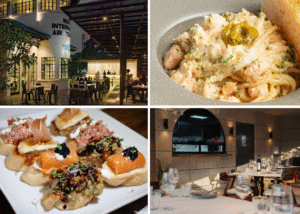In today’s globalized world, the demand for inclusive culinary options is growing, reflecting the rich tapestry of cultures and dietary practices. As people travel more frequently and multicultural communities expand, there is a pressing need to cater to diverse dietary requirements. Whether it’s halal food for Muslims, kosher meals for Jews, vegetarian and vegan options, gluten-free diets, or allergen-free foods, inclusivity in dining is essential. This blog explores the global efforts to make food inclusive and the impact it has on fostering understanding and acceptance across cultures.
The Importance of Food Inclusivity
Food is a universal language that transcends boundaries and brings people together. However, dietary restrictions and cultural food practices can make it challenging for some to fully participate in this shared experience. Inclusive food options ensure that everyone, regardless of their dietary needs, can enjoy meals together. This inclusivity not only respects individual choices and religious practices but also promotes a sense of belonging and mutual respect.
Global Efforts in Food Inclusivity
Halal Food
Halal food, prepared according to Islamic dietary laws, is crucial for Muslims. Countries with significant Muslim populations or tourist destinations are increasingly providing halal options. For example:
- Malaysia and Indonesia: These countries, with majority Muslim populations, naturally have widespread halal food availability. They also serve as models for halal certification standards.
- Singapore: Known for its multiculturalism, Singapore offers a diverse range of halal-certified restaurants and food stalls, ensuring Muslim residents and visitors can enjoy a variety of cuisines.
- The United Kingdom: With a growing Muslim community, many restaurants and supermarkets in the UK provide halal options, making it easier for Muslims to find suitable food.
Kosher Food
Kosher food adheres to Jewish dietary laws, and its availability is crucial for Jewish communities worldwide. Efforts to provide kosher food include:
- The United States: Cities like New York and Los Angeles have a wide range of kosher restaurants, catering to large Jewish populations. Supermarkets often have dedicated kosher sections.
- Israel: As the Jewish state, Israel has extensive kosher food options, from street food to fine dining, ensuring all food meets religious standards.
- France: With one of the largest Jewish populations in Europe, many French cities offer kosher bakeries, butcher shops, and restaurants.
Vegetarian and Vegan Options
The rise of vegetarianism and veganism has led to a significant increase in plant-based dining options globally. Efforts to accommodate these diets include:
- India: A large portion of the Indian population is vegetarian, making it a haven for vegetarian food lovers. Many restaurants offer extensive vegetarian menus.
- Germany: Berlin is known as the vegan capital of the world, with numerous vegan restaurants, cafes, and even a vegan supermarket.
- United States: Cities like Portland and Los Angeles are known for their vegan-friendly dining scenes, offering everything from vegan fast food to gourmet plant-based cuisine.
Gluten-Free and Allergen-Free Foods
For those with celiac disease or food allergies, finding safe dining options is crucial. Efforts to provide gluten-free and allergen-free foods include:
- Italy: Surprisingly, Italy, known for its gluten-rich pasta and pizza, has embraced gluten-free options, with many restaurants offering gluten-free versions of traditional dishes.
- Australia: Known for its health-conscious culture, Australia has numerous cafes and restaurants that cater to gluten-free and allergen-free diets.
- United Kingdom: Many UK supermarkets and eateries offer gluten-free and allergen-free options, making it easier for those with dietary restrictions to dine out safely.
The Role of Certification and Education
Certification plays a vital role in ensuring food meets specific dietary standards. Halal, kosher, and gluten-free certifications provide assurance to consumers about the suitability of the food. Organizations like the Halal Food Authority, Orthodox Union (for kosher), and the Gluten-Free Certification Organization are instrumental in this process.
Education and awareness are also crucial. Food service providers need to understand the importance of dietary restrictions and how to prepare food that meets these requirements. Training and resources can help ensure that inclusive dining is not just about availability but also about proper preparation and cross-contamination prevention.
Inclusive dining is more than just a trend; it is a reflection of our diverse and interconnected world. By accommodating various dietary restrictions and cultural practices, we create a more inclusive and welcoming environment for everyone. From halal and kosher to vegetarian, vegan, gluten-free, and allergen-free options, the global efforts to make food inclusive are a testament to the power of culinary diversity in bringing people together. As we continue to embrace this diversity, we not only enrich our culinary experiences but also promote greater understanding and respect across cultures.




